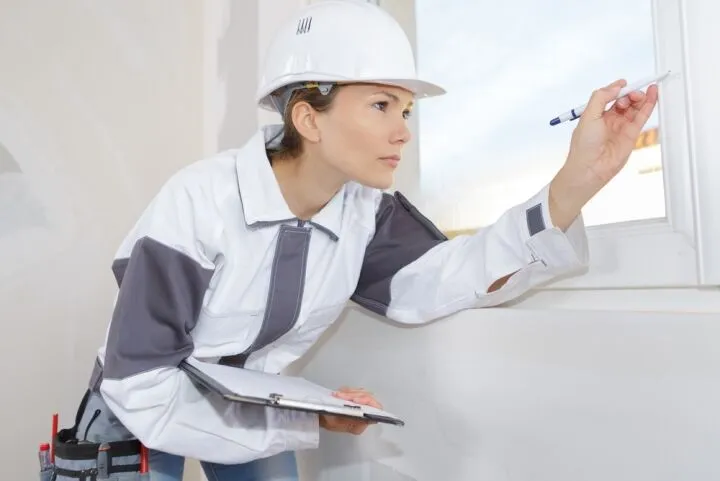Investing in commercial property can be a lucrative business, but it’s not without its risks. Whether you’re buying office buildings, retail spaces, or industrial properties, a thorough inspection is an essential part of the process. A commercial inspection allows you to assess the condition of the property and identify potential issues before making a big financial commitment.
In this article, we’ll explore the top benefits of a commercial property inspection for investors and why it’s a critical step in protecting your investment.

1. Identify Hidden Issues Before You Buy
One of the primary benefits of a commercial property inspection is that it helps uncover hidden issues that might not be obvious during a casual visit. Properties may appear well-maintained on the surface, but underlying problems can lead to expensive repairs later on. A commercial inspection will evaluate key systems and components, such as:
- Roofing: The condition of the roof is crucial, as repairs or replacements can be costly.
- Plumbing: Plumbing issues such as leaks, water pressure problems, or outdated systems can be expensive to fix.
- Electrical Systems: Inspecting wiring, outlets, and circuit breakers is important to ensure safety and avoid future electrical hazards.
- HVAC Systems: Heating, ventilation, and air conditioning systems need to be inspected for efficiency and functionality.
By identifying these issues before you finalize the purchase, you can avoid unexpected costs and make a more informed decision.
2. Negotiate Better Deals
Another significant benefit of a commercial property inspection is that it gives you leverage during negotiations. If the inspection reveals issues that need repairs, you can use this information to negotiate a lower purchase price or ask the seller to make the necessary repairs before the sale goes through. This can save you money on the initial investment and protect you from costly repairs down the line.
Additionally, if the property inspection uncovers major problems, you might decide to walk away from the deal entirely. This is particularly important in commercial real estate, where the costs associated with major repairs can be substantial. A thorough inspection ensures you’re not paying more than the property is worth.
3. Ensure Compliance with Local Codes and Regulations
Commercial properties are subject to a wide range of local building codes, zoning regulations, and safety standards. A commercial property inspection will assess whether the property complies with these codes. For example, it will check for compliance with fire codes, accessibility requirements, and environmental regulations.
If the property is not up to code, the inspection report will highlight the necessary upgrades. These can include structural changes, electrical system updates, or environmental remediation. Ensuring that a property complies with regulations before purchasing it can save you from expensive fines, delays, or costly retrofits.
4. Understand Future Maintenance and Repair Costs
Every property requires ongoing maintenance, but some properties are more expensive to maintain than others. A commercial property inspection provides an in-depth look at the age and condition of key systems, such as HVAC units, electrical panels, and plumbing. Knowing the condition of these systems helps you plan for future maintenance and repairs.
If the inspection reveals that certain systems are near the end of their life expectancy, you can budget for future upgrades or replacements. This helps you avoid unexpected financial burdens and better plan your long-term investment strategy. You can also factor these costs into your decision-making process when evaluating the overall value of the property.
5. Improve the Property’s Resale Value
As an investor, you may plan to hold onto the property for several years before selling. A commercial property inspection can help you identify areas that need improvement to increase the property’s resale value. By making repairs or upgrades based on the inspector’s recommendations, you can increase the attractiveness and functionality of the property for future buyers.
For example, replacing an old roof, updating the electrical system, or improving energy efficiency can significantly increase the property’s market value. This allows you to sell the property at a higher price and realize a better return on investment.
6. Protect Your Investment and Minimize Risk
Investing in commercial real estate always involves risk. A property inspection is one of the most effective ways to minimize that risk. By uncovering potential problems early on, you can make a more informed decision about whether or not to proceed with the purchase.
In some cases, the inspection may uncover severe structural or safety issues that make the property a bad investment. In these situations, the inspection provides an opportunity to walk away from the deal and avoid a bad financial decision. Even if you do decide to move forward, the inspection report helps you understand exactly what you’re getting into, allowing you to plan and manage risks more effectively.
7. Verify the Property’s Condition for Tenants
If you plan to lease the commercial property to tenants, it’s essential to ensure the property is in good condition. A property inspection will reveal any issues that might affect the quality of the tenant’s experience, such as leaks, mould, or heating/cooling issues. Addressing these problems before leasing the property can help attract quality tenants and keep them satisfied.
A well-maintained property is more likely to attract tenants who will take care of the space and stay long-term. Additionally, addressing maintenance issues upfront can prevent complaints or disputes with tenants down the road, leading to a more stable and profitable rental income stream.
8. Provide Confidence to Investors and Lenders
A commercial property inspection can provide confidence to other stakeholders, such as co-investors or lenders. If you’re financing the purchase of the property with a loan, lenders may require an inspection to ensure the property is in good condition and won’t present unexpected financial risks.
Having a clear inspection report that highlights the property’s strengths and weaknesses provides transparency for everyone involved. Investors can also use the inspection to make informed decisions about their level of involvement in the deal. If you’re looking to bring in partners or secure financing, a positive inspection report can make the process smoother.
9. Assess the Potential for Future Development or Renovation
If you’re buying a commercial property with plans for future development or renovation, the inspection can provide crucial insights. An inspector can evaluate the property’s structure and systems to help you determine whether it can accommodate your plans. For example, if you intend to build additional floors or expand the building, the inspector can assess whether the foundation and structural systems can handle the added load.
Understanding the property’s potential for future development ensures you don’t run into unexpected challenges down the line. It also helps you make informed decisions about the costs and feasibility of your renovation plans.
Conclusion
A commercial property inspection is a smart move for any investor looking to purchase real estate. By identifying hidden issues, ensuring compliance with local codes, and understanding future maintenance needs, a thorough inspection can save you money, reduce risk, and increase the value of your investment.
Whether you’re looking to buy a property to lease, renovate, or sell in the future, a commercial property inspection is an essential tool for making informed, confident decisions. Don’t skip this important step—it’s one of the best ways to protect your investment and ensure long-term success in the commercial real estate market.




